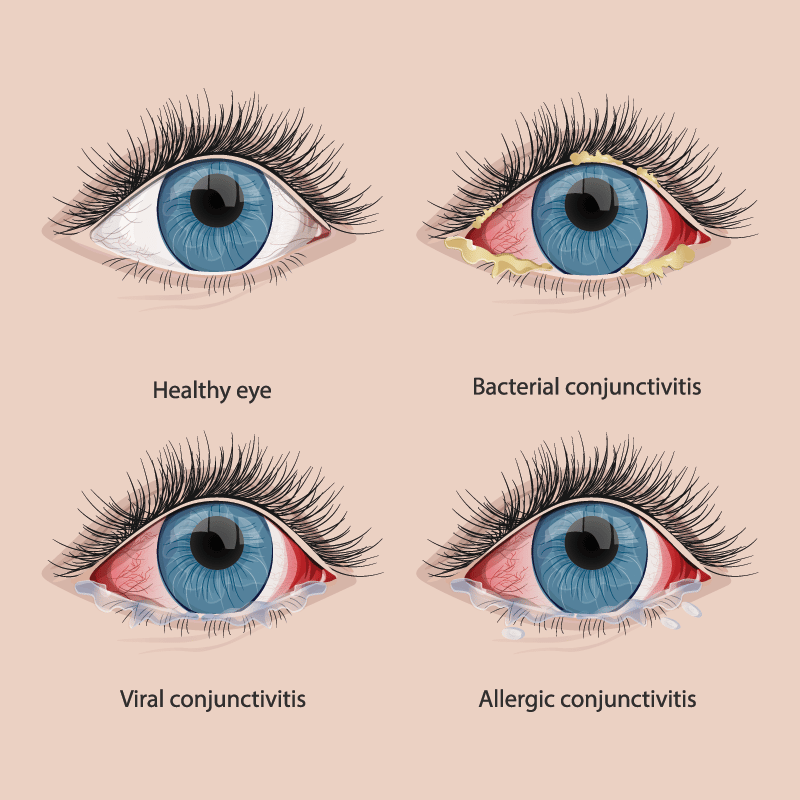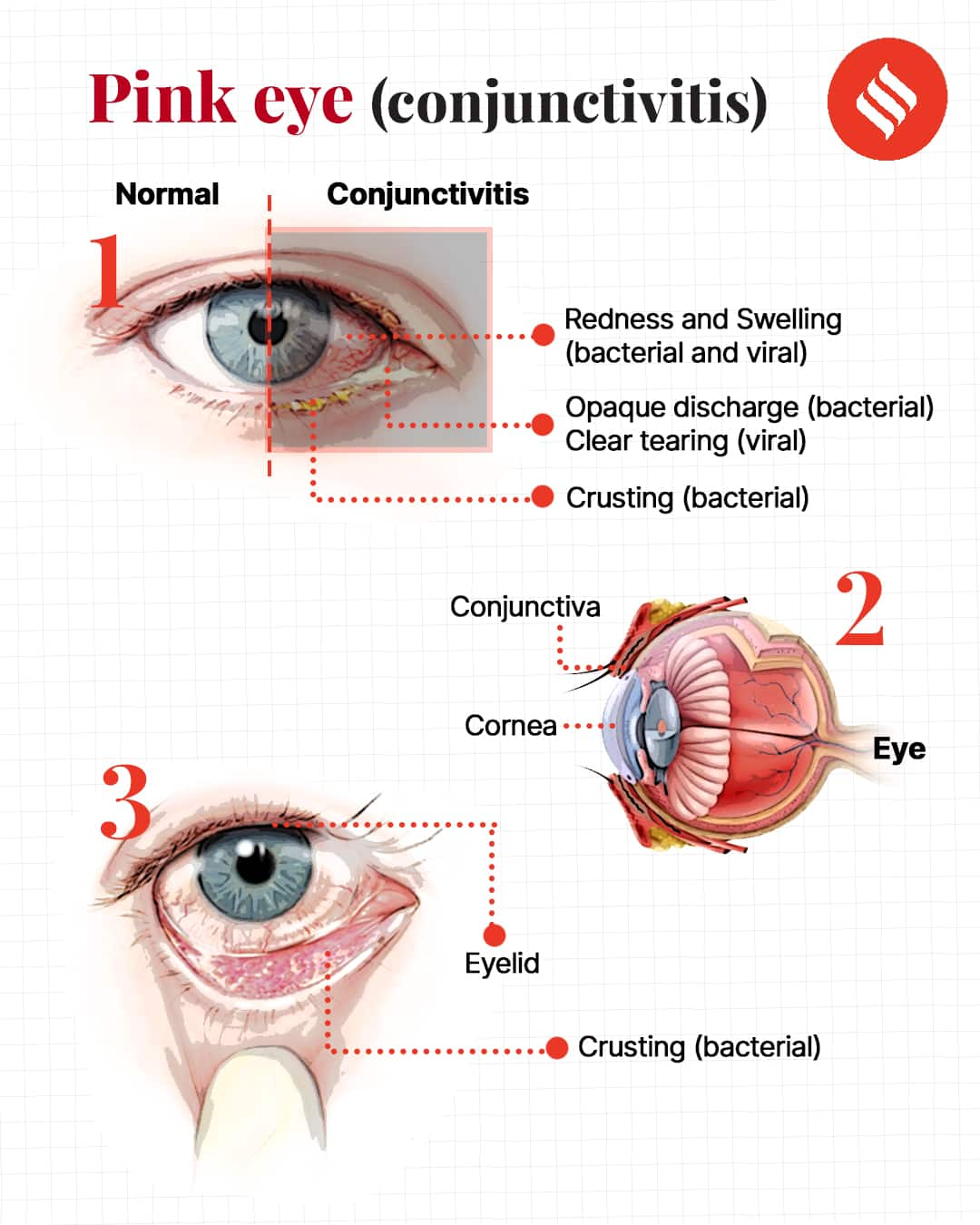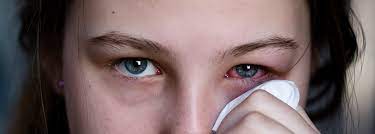Delhi, the bustling capital of India, is renowned for its rich history, vibrant culture, and cosmopolitan lifestyle. However, alongside its diverse population and fast-paced urbanization, the city is grappling with an alarming rise in eye infections. These infections can be caused by various factors such as pollution, climate, hygiene practices, and socio-economic conditions. In this article, we will explore the causes, symptoms, and preventive measures to combat this growing concern in the capital city
Table of Contents

Water logging, Humid conditions:
Bacterial, and viral infections spike up in humid conditions given the recent flooding of Yamuna River amidst heavy downpours, the chances of infections have increased. According to JS Titiyal, chief of the Centre for Ophthalmic Sciences at AIIMS, Delhi is seen to be witnessing a significant increase in cases being recorded with 100 cases being reported daily.
Generally, monsoons are the ideal season for bacterial and viral flu and infections. The disease is majorly caused due to inflammation of the conjunctiva also called the transparent membrane of the eye, given the pink colour in appearance.

Causes of Eye Infections in Delhi:
Air Pollution: Delhi is notorious for its high levels of air pollution, including particulate matter, vehicular emissions, and industrial pollutants. Prolonged exposure to these contaminants can irritate the eyes, leading to conjunctivitis (pink eye) and other infections. Airborne allergens and pollutants can easily come into contact with the eyes, causing irritation and increasing the risk of infections.
Allergens: The city’s diverse plant life and pollen contribute to seasonal allergies that can affect the eyes. Allergic conjunctivitis is a common occurrence, causing redness, itching, and watery eyes. During specific times of the year, when the pollen count is high, individuals with preexisting eye conditions or weakened immune systems are at a higher risk of developing eye infections.
Unhygienic Practices: Inadequate personal hygiene and improper handling of contact lenses can lead to bacterial and fungal infections of the eye. In crowded urban areas, the risk of spreading infections is higher due to proximity. Additionally, touching the eyes with unwashed hands, sharing personal items like towels, and using expired eye makeup can introduce harmful pathogens, leading to eye infections.
Water Contamination: Many areas in Delhi still face challenges with safe drinking water and sanitation. Using contaminated water to clean the eyes or coming into contact with contaminated water sources can result in infections. Microorganisms present in unclean water can easily cause eye-related ailments, especially in vulnerable populations like children and the elderly.
Symptoms of Eye Infections:
The symptoms of eye infections may vary depending on the type and severity of the infection. Common symptoms include
Redness and Irritation: Red, bloodshot eyes and persistent irritation are classic signs of eye infections. The blood vessels in the eyes dilate in response to infection or irritation, leading to a red appearance.
Discharge: Watery or thick, coloured discharge from the eyes can indicate infection. Bacterial and viral infections can cause different types of eye discharge, such as yellow or greenish discharge in bacterial conjunctivitis and clear, watery discharge in viral conjunctivitis.
Itching: Frequent rubbing of the eyes due to itching can worsen the infection and spread it to the other eye. Itching is common in cases of allergic conjunctivitis.
Sensitivity to Light: Photophobia or sensitivity to light may occur in some cases. Bright lights can intensify discomfort and pain in infected eyes.
Blurred Vision: Infections can cause temporary blurred vision or difficulty in focusing. Blurred vision may be a sign of more severe infections that require immediate medical attention.
Preventive Measures:
Prevention is key to combatting the rising incidence of eye infections in Delhi. Here are some essential preventive measures:
Maintain Personal Hygiene: Regularly wash your hands with soap and water, especially before touching your eyes. Avoid touching or rubbing your eyes unnecessarily. When cleaning the eyes, use a clean, soft cloth or tissue and avoid sharing personal items that come into contact with the eyes.
Protect Your Eyes Outdoors: Wear sunglasses to shield your eyes from harmful UV rays, dust, and pollutants when outdoors. Sunglasses with a wrap-around design offer better protection against dust and allergens.
Address Allergies: If you have seasonal allergies, consult an ophthalmologist or allergist to manage them effectively. Following a prescribed treatment plan can reduce the likelihood of allergic conjunctivitis and associated eye infections.
Proper Contact Lens Care: If you wear contact lenses, adhere to strict hygiene guidelines while handling, cleaning, and storing them. Follow the recommended lens replacement schedule and avoid wearing lenses while swimming or bathing.
Avoid Self-Medication: In case of eye discomfort, avoid using over-the-counter eye drops without a doctor’s prescription, as they may worsen the condition or mask underlying issues. Consult an eye care professional for a proper diagnosis and treatment plan.
Keep the Environment Clean: Individuals and communities should strive to maintain cleanliness and minimize pollution in their surroundings. Proper waste management, reduced vehicular emissions, and tree plantation can contribute to a cleaner environment, which may help alleviate eye infections.
Conclusion:
The rising incidence of eye infections in Delhi is a matter of concern that calls for immediate attention. The city’s population must be vigilant about personal hygiene, pollution control, and eye protection to prevent the spread of infections. Early diagnosis and treatment are crucial to avoid complications and ensure swift recovery.
By collectively taking preventive measures and fostering awareness, Delhi can work towards a healthier future for its citizens’ eyesight and overall well-being. Government initiatives and public awareness campaigns can play a significant role in educating people about the importance of eye health and preventive measures. Additionally, regular eye check-ups and prompt medical attention for any eye-related symptoms can go a long way in reducing the burden of eye infections in the capital city. Together, let us strive to preserve the gift of vision and build a healthier, infection-free Delhi for generations to come.












